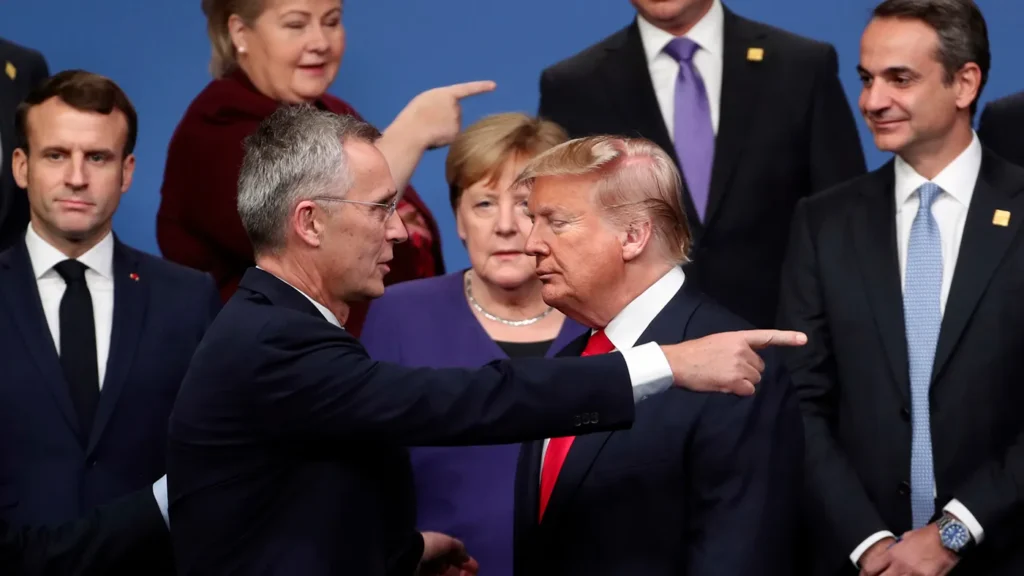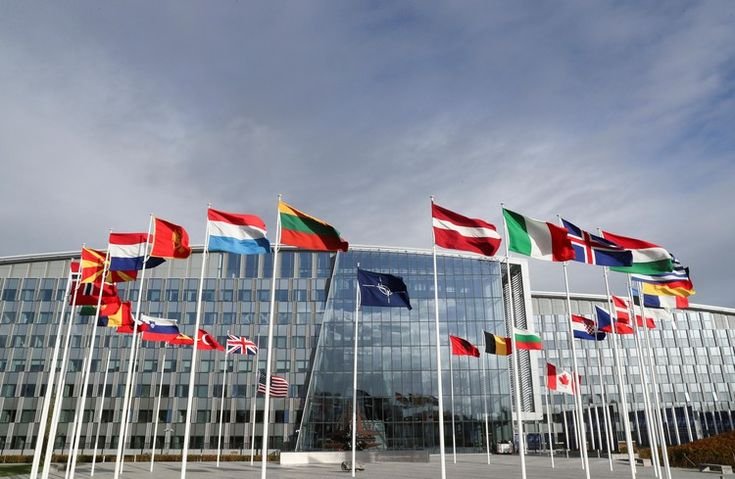In a seismic shift sparked by former US President Donald Trump’s recent remarks, Europe’s NATO members are rapidly reevaluating their defense strategies amid fears of reduced American support. Trump’s assertion, suggesting the US might not defend NATO allies who fail to meet their financial obligations, has reverberated across Europe, inciting a spectrum of reactions from alarm to indignation among its member nations.
A pivotal moment came during a speech on Saturday when Trump highlighted a hypothetical scenario where a country, delinquent in its NATO payments, seeks US protection against an attack. Trump’s blunt response, “No, I would not protect you,” underscored a stark warning—contributions matter, and failure to meet financial commitments could have dire consequences. This blunt pronouncement has catalyzed a significant reassessment within NATO’s European contingents, prompting a collective reckoning with the alliance’s future without guaranteed US intervention.
The reaction across Europe has been swift and varied. While some countries perceive Trump’s ultimatum as constructive feedback, urging a recalibration of defense expenditures, others express resentment, interpreting his stance as a betrayal of the NATO principle of mutual defense. Yet, beneath this cacophony of reactions lies a unifying premise: the urgent need for Europe to reinforce its defense mechanisms independently of the US.

Leaders across the continent have voiced their positions, reflecting a broad consensus on the imperative of self-reliance. Statements from various European officials underscore a newfound determination to bolster defense capabilities, with calls for “waking up” and taking a “cold shower” as the realization sets in that Europe must enhance its security provisions.
This newfound resolve signifies a profound transformation within NATO’s European faction, with countries like Poland, France, and Germany leading the charge. These nations are not only advocating for increased defense spending but are also exploring avenues for deepening mutual defense ties. Initiatives such as the revival of the dormant Weimar Triangle—an alliance between Poland, France, and Germany—embody Europe’s shift towards intra-continental alliances, signaling a potential reduction in dependency on American military might.
As these nations undertake a sobering assessment of their defense postures, the echo of Trump’s admonition looms large, serving both as a catalyst for change and a symbol of the fraying trust between Europe and the US. Although Trump’s comments may have succeeded in urging European nations towards greater self-sufficiency, they also risk undermining the foundational trust that has underpinned the transatlantic alliance for decades.
In contemplating the future of NATO, the quandary for Europe is not merely one of financial contributions but of sustaining an alliance amidst shifting allegiances and wavering support. As European nations rally to fortify their defense capabilities, the broader implications for NATO’s cohesion and the transatlantic partnership remain uncertain. The unfolding scenario underscores a pivotal juncture for NATO’s European members as they navigate the delicate balance between alliance and autonomy.
Read More:- The Untimely Demise of Alexei Navalny: Putin’s Most Prominent Critic
With European NATO members now poised to strengthen their defenses independently of the US, the ripples of Trump’s pronouncement may well redefine the contours of international security arrangements, marking a significant recalibration of alliance politics in the 21st century.
Fan of Anime? Check out – Pop Media Pulse
